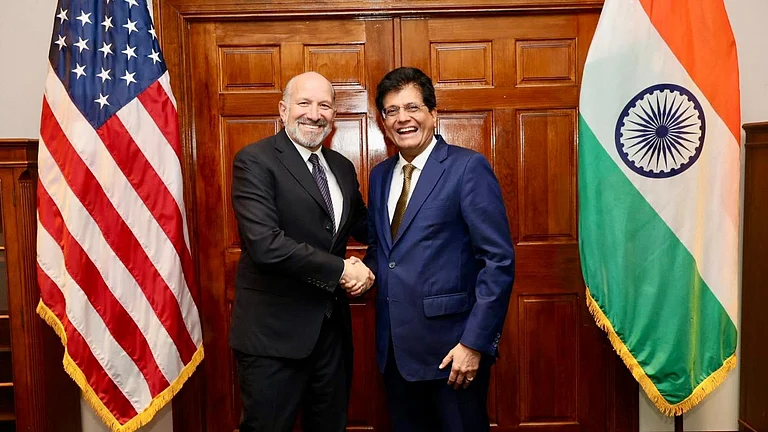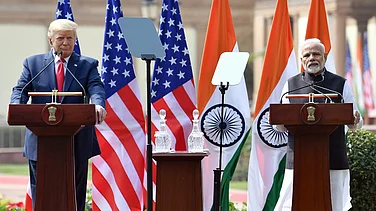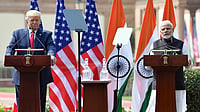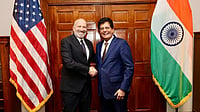Even as global growth and trade have taken a hit in recent years and the world seems in no mood to embrace exports, India’s exports have continued to grow, finance minister Nirmala Sitharaman said today. Rejecting 'tariff king' remark made by the US President Donald Trump against New Delhi, she noted that India's total exports reached at an all time high of $825bn in the last financial year.
Speaking at the Exim Bank conclave, she stated that three qualities of the Indian exports have stood out--Indian exports are growing significantly, finding technology-infused high-end products and finding newer markets. As demand in Europe softens, she said Indian exporters have shown imagination in tapping new regions and sectors.
The Finance Minister then outlined five key areas where the government has intervened to support the export ecosystem. These include transport and logistics upgradation, targeted support to MSMEs, trade finance access, trade cluster development and free trade agreements (FTAs) negotiations to expand export opportunities with various countries.
Sitharaman said the traditional view of Special Economic Zones (SEZs) as the only route to export promotion is now outdated. “Today, you can grow into a successful exporter from within your district,” she said. PLI, she noted, has played a transformative role, shifting India’s export basket from traditional commodities to high-value goods. PLI-backed exports have now exceeded ₹5.31 lakh crore spanning electronics, pharmaceuticals, food processing, and telecom.
India’s total exports, she noted, have touched an all-time high of $825bn—a 6% increase over the previous year, significantly outpacing global growth of just 4%. Since 2014, the country has attracted $668bn in FDI, accounting for 67% of all FDI inflows over the last 24 years. She cited Apple’s manufacturing partners in India as a standout example of value addition, having achieved over 20% local input in their iPhone production.
Dismissing labels like “tariff king,” made by the US, she explained that while Parliament grants permission for a ceiling rate, actual effective rates are much lower. “This year’s budget rationalised the structure down to just eight tariff bands, including zero. That is real reform,” she stressed.
Announcing further budget measures, she said the government has introduced a national Bharat TradeNet platform for digital trade documentation and financing, alongside investments in warehousing and air cargo infrastructure. The classification threshold for MSMEs has been revised upwards, and a framework to support Global Capability Centres (GCCs) in Tier-2 cities has been put in place.
She also highlighted trade facilitation measures, including a time limit for provisional assessment in the Customs Act, and extension of the time limit for end-use of imported inputs from 6 months to 1 year to provide operational flexibility.





























